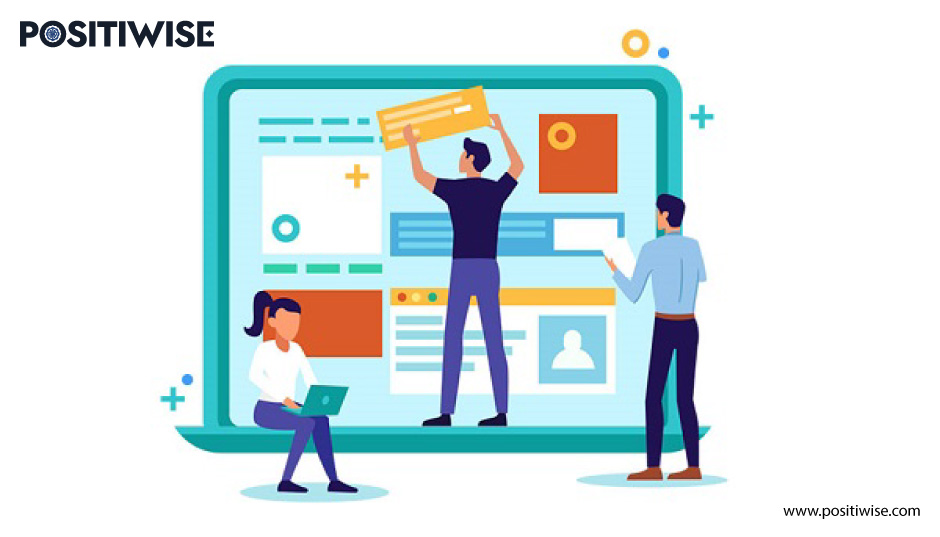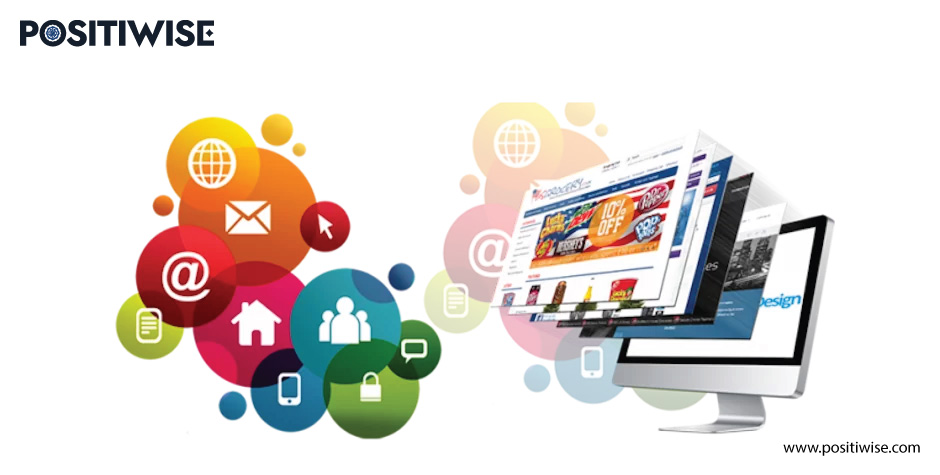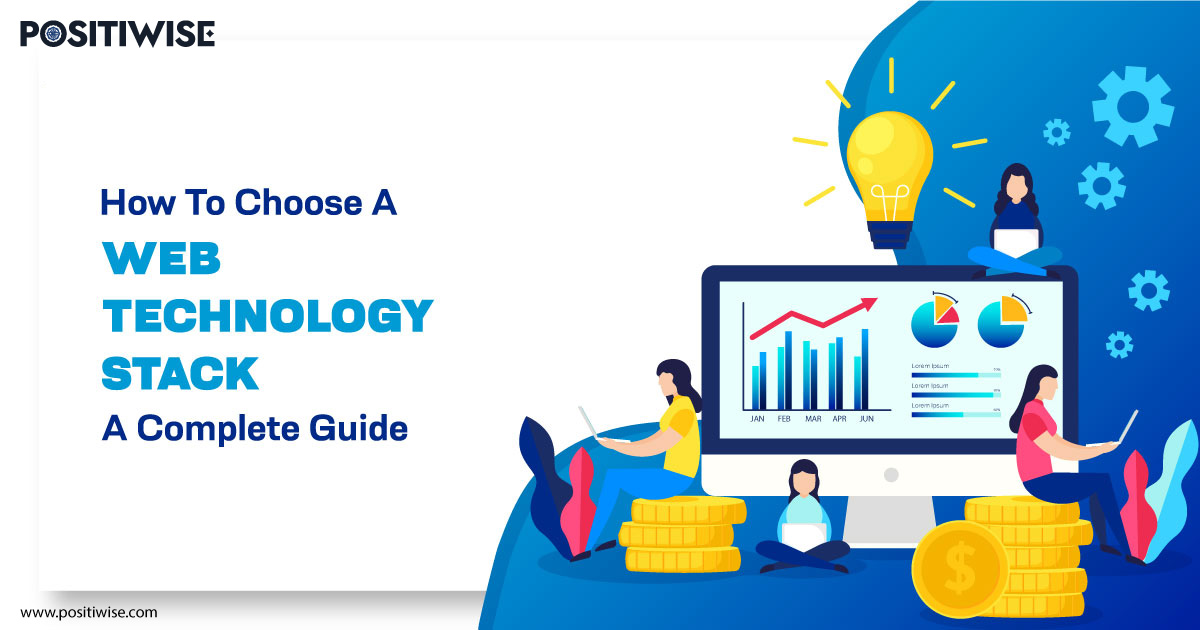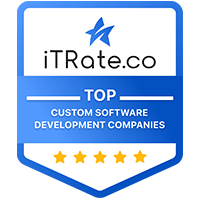Quick Overview:
As most people have started shopping online, organizations have modernized them to compete in the online marketplace.
For growing your emerging business on the internet, you need some essential web portal services, and for this, going through web portal examples should be your first step.
With a boosting performance and promising features to increase productivity, web portals are becoming a crucial element of every online industry, and every startup to industry giant is implementing it.
From this, you can know how important it is to have a web portal.
So, let’s get started to know the web portals list you will require for your online business.
What is a Web Portal?
A web portal is an online platform, mainly accessed through browsers, and it is linked with a database to provide the information per user request.
We use these portals in our daily lives to complete our tasks. For instance, if you are checking the status of your order in progress, you are using a customer portal for that purpose.
Let’s go through another example to understand it more precisely.
If you want to file your annual tax using online mode, then you access the web portal of the Income Tax department and submit all your documents and payments through it. All the files are then in their database, and payment is updated in the account.
You can remember it as an access gateway, for which you need a username and password to utilize its resources.
To successfully run an online business, you need various types of web portals. So, let’s move further and learn about them all.
Let’s Scout the Top 8 Web Portal Examples
- Customer Portal
- Employee Portal
- Partner Portal
- Community Portal
- Membership Portal
- E-Commerce Portal
- Lead Generation Portal
- Vertical Web Portal
#1 Customer Portal
Customers are one of the primary stakeholders of any organization, and having a better relationship with them is everyone’s priority.
Organizations use dedicated customer portals to allow their users to access all the relevant resources in a secure environment. Your customers can view this portal to view their order summary, payments, coupons, cashback, personal information, etc. s
These portals are intuitive and straightforward so that every customer can quickly discover and utilize every feature on the panel.
A customer portal is an essential requirement when you have an online business. In addition, you have to make these portals consistently available for customer convenience and regularly update them to ensure a seamless user experience.
Once you implement it, you can avail of countless web portal services, such as:
- Your users will quickly find all the essential information, improving your customer satisfaction rate.
- You will see the user engagement rate growing exponentially.
- Customers will be able to resolve their issues on their own, leading your support team to manage the work precisely.
- Your customers can efficiently contact your organization for any query and feedback and track their request status.
- You can automate your data storing, processing, and organizing operations by configuring a centralized system and linking the customer portal with your business solution.
#2 Employee Portal
Employee portals are a boon for Human Resource executives, as they have to handle all the employee-oriented operations in an enterprise.
Using these web portals manages all the employee data through a single interface. In addition, it also aids in smoothening the hiring and training process of new staff members.
If you are thinking, if only HR uses it, then why it is called an employee portal? You are right at your place till now. But let’s see what makes it an employee web portal.
Besides HR, every other department in an organization can also take advantage of this portal. It leverages employees to organize work and collaborate with project team members.
Moreover, with custom API integration, you can enable your organization’s chat, file sharing, and workflow creation features and let your allies work smartly and quickly.
#3 Partner Portal
Whether you are selling a product or providing any service, you must have business partners to optimize productivity.
Most organizations find it complex to maintain consistent relationships with all their associates. To ensure that you do not face difficulties, the partner web portal is the perfect fit for your online business.
Through a partner portal, you and your ally can effortlessly communicate with each other and share the latest information.
With modern portals, you can assign unique to every partner and link information. As a result, you will be able to view each detail about a particular partner by inputting its ID.
Furthermore, you can create multiple partner profiles and provide a username and password to your collaborators, which they can use to access the panel for executing their tasks.
It will lead your online business:
- Always have active communication with both primary and secondary partners.
- Classify the allies as per your requirement.
- Monitor the workflow and exchange of payments.
#4 Community Portal
With immensely growing digital influencers, community web portals are coming into fashion. These web portals aim to provide services and products to community members by navigating through extensive catalogs.
For Example, Many people have their pages on Instagram, and their follower base is exponentially accelerating. When they reach 100K followers, they start a community platform where their followers can only explore and avail of their services.
If you have a the-related Instagram page, you can create and adopt a community platform to magnify user engagement and revenue.
In addition, you can embed payment gateways and customer portals to analyze and manage the payments by your community members. Customer portals will enable them to track their orders and modify their account details.
#5 Membership Portal
In recent times, there have been many data breaches over online portals, affecting the revenue and reputation of the organization.
Most of the attacks were due to unauthorized access to the internal enterprise network when evaluated. To prevent such attacks, companies are using membership portals.
By including this portal in your IT infrastructure, you can create an account for each of your staff members. Anyone who wants to access any information must log in using their credentials.
As a result, you will reduce the probability of unauthorized access and data breach.
In addition, you can check the logs, perform analytics, convert your raw data in the form of charts and graphs, create bulletin boards, and send emails only to the company’s network.
It also leverages work from home or remote work culture. A membership portal will enable all your staff members to connect with the enterprise network through a secure virtual private network.
#6 E-Commerce Portal
If your business sells some products, having an e-commerce web portal is crucial.
Let your customers shop 24/7 and enhance your visitor conversion through an online marketplace that displays all the relevant products at once.
You can also set up online payments and directly link them with your bank account for seamless transactions. Most businesses start their online journey through an E-commerce platform.
For creating an online store, you can collaborate with an IT solutions company, such as Positiwise.
By having an e-commerce web portal, you can manage all your online business operations, such as classifying products, managing inventory by linking it with the ERP system, generating invoices, and creating a community of your organization with its potential customers.
#7 Lead Generation Portal
Reaching out to the targeted audience and extending and retaining potential customers is essential for any online business. Most companies develop a landing page for their website, comprising call-to-action elements for gathering essential data.
You must have seen pop-ups on many online portals that ask you to input your name and email address to get newsletters from the company or show you feedback and a survey form.
You use this data for internal purposes, such as improving services and updating the users about new offers and products.
Moreover, you can also analyze your customers’ behavior and optimize your web app accordingly to offer a seamless experience.
#8 Vertical Web Portal
If you are new to the online market, a vertical portal can lead you to extend your business. Vertical portals are focused on a particular industry and provide all the information about it in graphs, charts, blogs, survey results, statistics, and so forth.
For example, if you are an electronic goods selling company, you can get an idea of the top-selling products in the market and what items customers demand.
As a result, you can modify your strategies and ad campaigns and update your stock with trending items to gain a large customer base and increase your revenue.
How to Use Web Portal?
Web portals are easy to use. You need to go through every feature, try your hands on setting it up, and get numerous internet resources for learning their configuration, operating, and maintenance procedures.
Like Websites, top web portals also have an end-user and an admin panel.
The admin panel will help you handle the content shown to your customers and modify the default configurations. You can customize each page of the portal and monitor its functioning and performance.
If it’s like a website, you must think, why is it called a Web Portal?
The primary difference between both these is the objective of developing these two. Businesses furnish their websites to build their brand across the internet to reach a maximum number of audiences and retain more potential customers.
Web portals are fabricated for specific users, such as organizations using employee web portals to handle operations clearly to their internal staff members.
Accelerate Your Business with Custom Software Solutions
Struggling with outdated or ineffective software? Our expert team provides custom systems designed specifically for your business needs. We analyze your operations, build solutions to fit your workflow and integrate with existing infrastructure.
Concluding Up
Web portals are necessary for every online business, and every enterprise must understand the different types of web portals to optimize their strategies.
A web-based portal that automates your task improves the relationship with business partners, customers, employees, and vendors. Moreover, you can adjoin the latest technologies to boost your revenue and improve the user experience.
If you want to make a significant and establish your brand across the internet, the best web portals can help you achieve this goal.
Expert in Marketing Strategy and Brand Recognition
Jemin Desai is Chief Marketing Officer at Positiwise Software Pvt Ltd, he is responsible for creating and accelerating the company’s marketing strategy and brand recognition across the globe. He has more than 20 years of experience in senior marketing roles at the Inc. 5000 Fastest-Growing Private Companies.






